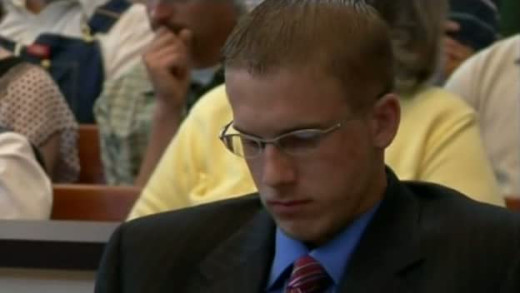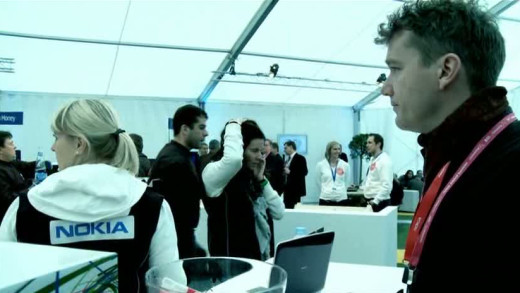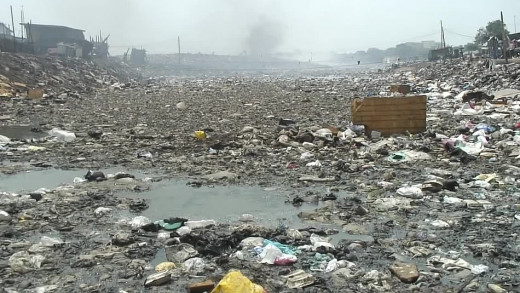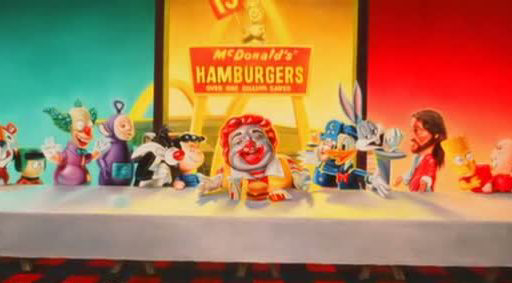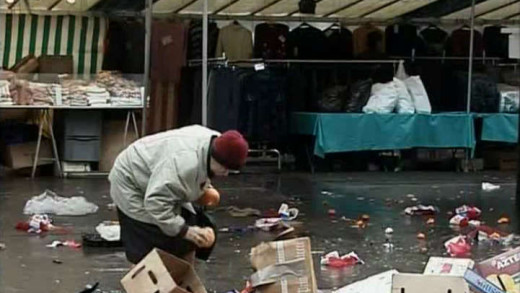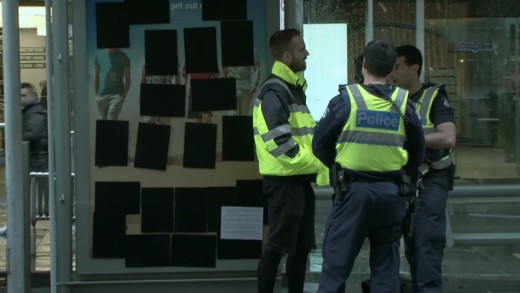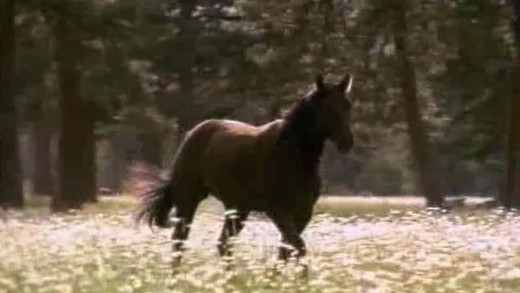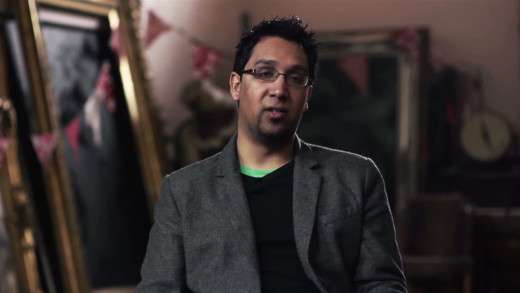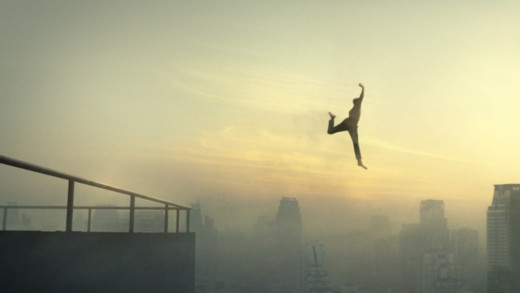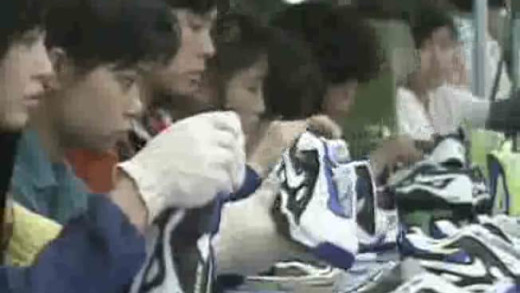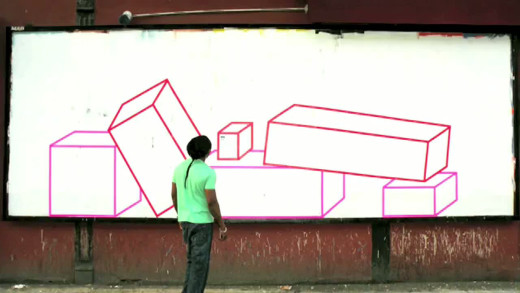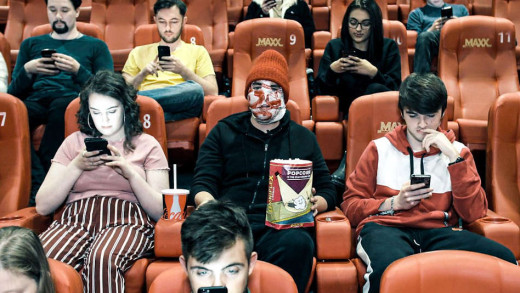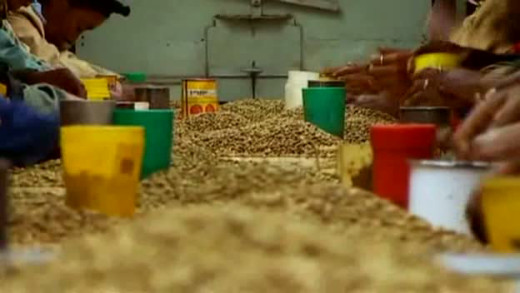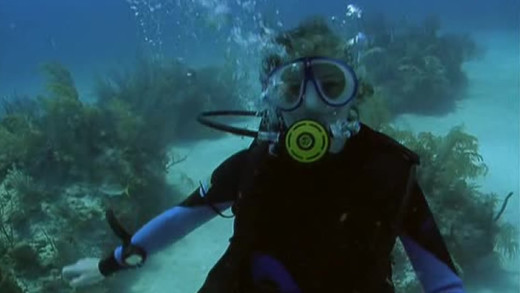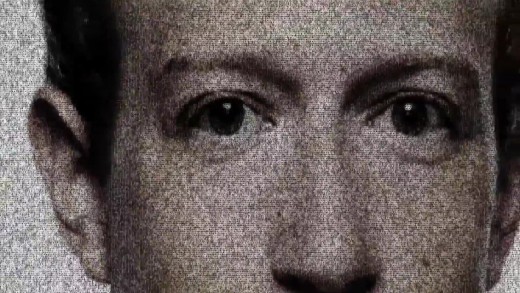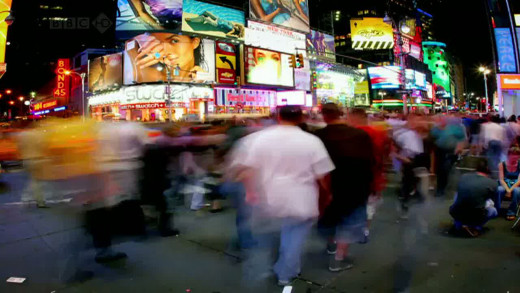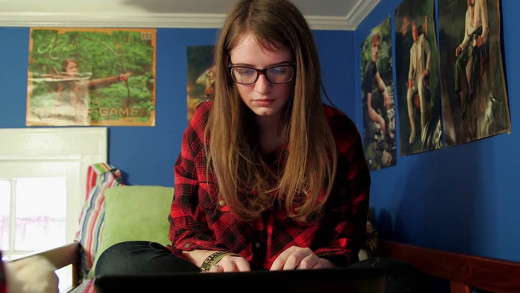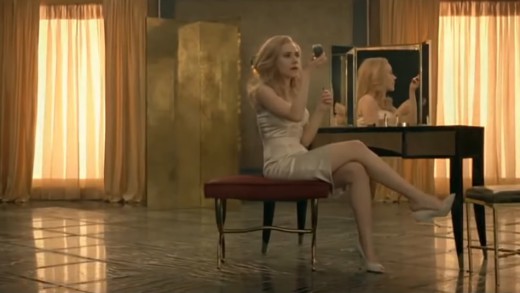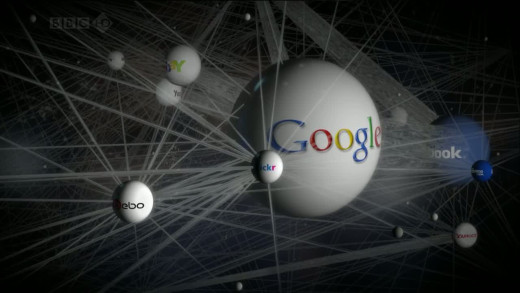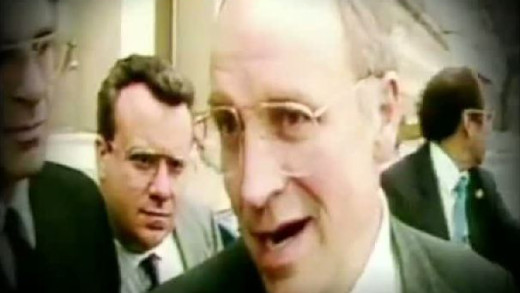Having received a tip from an employee at a farm where animals were being abused, including a claim that pigs were being hung by chains and strangled to death as a form of 'euthanasia,' the Humane Farming Association (HFA) turns to an undercover investigator going by the name of "Pete." While wearing a hidden camera, Pete secretly films while he works undercover as a farmhand at Wiles documenting numerous incriminating scenes, including piglets being tossed into crates from across a room, impregnated sows held in pens impeding their ability to move, an unhealthy piglet being hit against a wall to kill it, and a sick sow being hung by a chain from a forklift until it choked to death. Having obtained this evidence, Pete concludes his investigation and quits the job at the farm. In the subsequent trial carried by the HFA, the prosecutors and the defence argue the legality and morality of these practices. The presiding judge describes it as "distasteful and offensive," however, rules that such are the realities of factory farming...
Modern society loves mobile phones -- the selection between different models and gadgets has never been bigger. But the production of this technology has a hidden, dark, bloody side. The main minerals used to produce mobile phones are coming from the mines in the Eastern DR Congo. The Western World is buying these minerals up at a furious rate, financing a bloody civil war which, during the last 15 years, has cost the lives of more than 5 million people. Blood In The Mobile explains the connections between mobile phones and the civil war in the Congo, while technology corporations whitewash the issue to "supply and demand" and claim ignorance...
e-Wasteland
Almost 50 million tonnes of electronic waste is generated worldwide, every year. A large volume of it is shipped off to Ghana, in West Africa, as "second-hand goods" where electronics are not seen for what they once where, but rather for what they've become. Without dialogue or narration, e-Wasteland presents a visual portrait of vast landscapes polluted by electronic waste, shining a light on the endless consumerism of the 1st world; and the real, pervasive, ecological impact of electronic waste worldwide.
YouTube, owned by Google, has become one of the most powerful online media platforms in the world, fast to be replacing the viewership of television with over 30 billion hours watched per month in 2017. Young people flock to the platform in the hopes of fame and fortune, which comes for a select few, but not all, hence the allure to 'make it.' YouTube celebrities are now mainstream celebrities. The result is troves competing to live their lives as monetised open-wounds for the corporate platform, constantly pleading for subscribers, attention and engagement, all at the hands of Google, its secret algorithms, and the screen culture of spectacle, pornography, and targeted advertising. On both sides of the screen, the treadmill is all about keeping the ad dollars constantly rolling. YouTube, YouTubers and You offers a glimpse into this new media and advertising world, pondering how this culture may continue to undermine our future media and informational landscape. What sort of people and world is this culture creating and perpetuating?
They spend their days sifting through reams of market research data. They conduct endless surveys and focus groups. They comb the streets, the schools and the malls, hot on the trail of the "next big thing" that will snare the attention of their prey -- a market segment worth an estimated $150 billion a year. They are the merchants of cool: creators and sellers of 'popular culture' who have made teenagers the hottest consumer demographic...
Several lawsuits have been brought against McDonald's corporation in that they are knowingly selling food that is unhealthy. Some of the court decisions have stated that consumers would have a claim if they could prove that eating the food every day for every meal is dangerous. So with that, Super Size Me follows film-maker Morgan Spurlock conducting the experiment -- he eats only McDonald's for thirty days, three meals a day, and if asked to super size a meal, he has to say yes. By the end of the thirty days, he will have eaten every single menu item at least once. The film documents the drastic effect on Spurlock's health, while exploring the fast food industry's corporate influence, advertising and how it encourages poor nutrition for its own profit...
In Requiem for the American Dream, renowned intellectual figure Noam Chomsky deliberates on the defining characteristics of our time—the colossal concentration of wealth and power in the hands of the few and fewer, with the rise of a rapacious individualism and complete collapse of class consciousness. Chomsky does this by discussing some of the key principles that have brought this culture to the pinnacle of historically unprecedented inequality by tracing a half century of policies designed to favour the most wealthy at the expense of the majority, while also looking back on his own life of activism and political participation. The film serves to provide insights into how we got here, and culminates as a reminder that these problems are not inevitable. Once we remember those who came before and those who will come after, we see that we can, and should, fight back.
Clothes to Die For documents the worst industrial disaster of the 21st century--the collapse of the Rana Plaza building in Bangladesh, in which more than 1,100 people died and 2,400 were injured. The eight-storey building housed factories that were making clothes for many western companies--Prada, Gucci, Primark, Walmart, H&M, Gap, and others. Through a series of compelling interviews and footage from the scene, this film gives a voice to those directly affected, and highlights the greed and high-level corruption that led to the tragedy. It also provides an insight into how the incredible growth in the garment industry has transformed Bangladesh, in particular the lives of women. Clothes to Die For raises fundamental questions about the global fashion industry and the responsibilities of all those involved.
The Gleaners and I explores gleaning -- the act of collecting food from farmers' leftover crops after they have been commercially harvested. Travelling along the French countryside, the film-maker follows a series of gleaners as they hunt for food, knicknacks, and personal connection; capturing the many aspects of gleaning and the many people who glean to survive -- finding not only field gleaners, but also urban gleaners and those connected to the gleaners, including a wealthy restaurant owner, an urban gleaner with a master's degree who teaches French to immigrants, and artists who incorporate recycled materials into their works...
In a visual exploration of institutionalised prostitution, Whores' Glory travels the globe to show how these people really live and work today, across three economically divergent countries. In Bangkok, Thailand, women punch a clock and wait for clients inside a brightly-lit glass box. In the red-light district of Faridpur, Bangladesh, a madam trafficker haggles over the price of a teenage girl. On the border town of Reynosa, Mexico, crack-addictions run high while women pray to 'Lady Death.' Whores' Glory is a unobscured look at the realities of sex-trafficking today and the industry that continues to spawns it and keep it alive.
No Measure of Health profiles Kyle Magee, an anti-advertising activist from Melbourne, Australia, who for the past 10 years has been going out into public spaces and covering over for-profit advertising in various ways. The film is a snapshot of his latest approach, which is to black-out advertising panels in protest of the way the media system, which is funded by advertising, is dominated by for-profit interests that have taken over public spaces and discourse. Kyle's view is that real democracy requires a democratic media system, not one funded and controlled by the rich. As this film follows Kyle on a regular day of action, he reflects on fatherhood, democracy, what drives the protest, and his struggle with depression, as we learn that "it is no measure of health to be well adjusted to a profoundly sick society."
Humanity is absolutely dependent on animals as part of life. In industrial society however, this has extended to animals as pets, 'entertainment' and for expendable use in scientific research -- animals are tortured for 'scientific tests', locked in cages as pets and at the zoo and are bred on mass for cheap meat. What does this say about industrial civilisation? Earthlings conducts an in-depth study into pet stores, puppy mills and animals shelters, as well as factory farms, the leather and fur trades, sports and entertainment industries, and the medical and scientific profession, using hidden cameras to directly show the day-to-day practices of some of the largest industries in the world...
The Crisis of Civilization draws on archive footage and essentially monologue by author Nafeez Mosaddeq Ahmed to detail how global problems like environmental collapse, financial crisis, peak energy, terrorism and food shortages are all symptoms of a single, failed global system...
The Disney Company's massive success in the 20th century is based on creating an image of innocence, magic and fun for kids. Its animated films in particular are almost universally lauded as wholesome family entertainment, enjoying massive popularity among children and endorsement from parents and teachers around the world. This film takes a close look at Disney, to analyse the world these films create for kids and the stories they tell and propagate; contextualised by the cultural pedagogy of Disney's conglomerate mass-media control and vast corporate power. Including interviews with social commentators, media scholars, child psychologists, kindergarten teachers, multicultural educators, college students and children, Mickey Mouse Monopoly provokes audiences to confront assumptions about an institution that is virtually synonymous with childhood pleasure.
Ten years on from his previous film, Advertising & the End of the World, renowned media scholar Sut Jhally follows up by exploring the since-escalating devastating personal and environmental fallouts of advertising and the near-totalising commercial culture. The film tracks the emergence of the advertising industry in the early 20th century to the full-scale commercialisation of the culture today, identifying the myth running throughout all of advertising: the idea that corporate brands and consumer goods are the keys to human happiness and fulfilment. We see how this powerful narrative, backed by billions of dollars a year and propagated by clever manipulative minds, has blinded us to the catastrophic costs of ever-accelerating rates of consumption. The result is a powerful film that unpacks fundamental issues surrounding commercialism, media culture, social well-being, environmental degradation, and the dichotomy between capitalism and democracy.
No Logo
In the age of the brand, logos are everywhere. But why do some of the world's best-known brands find themselves at the end of spray paint cans and the targets of anti-corporate campaigns? No Logo, based on the best-selling book by Canadian journalist and activist Naomi Klein, reveals the reasons behind the backlash against the increasing economic and cultural reach of multinational companies. Analysing how brands like Nike, The Gap, and Tommy Hilfiger became revered symbols worldwide, Klein argues that globalisation is a process whereby corporations discovered that profits lay not in making products (outsourced to low-wage workers in developing countries), but in creating branded identities people adopt in their lifestyles. Using hundreds of media examples, No Logo shows how the commercial takeover of public space, the restriction of 'choice', and replacement of real jobs with temporary work -- the dynamics of corporate globalisation -- impact everyone, everywhere...
My Public Space is a short film following a local artist in New York City, documenting the effort to reformat the visual pollution of advertising into public artwork spaces...
Sugar Coated investigates a once secret public relations campaign, dating back to the 1970s, where the sugar industry deflected threats to its multi-billion dollar empire from scientific research emerging implicating processed sugar with adverse health effects. In order to continue sweetening the world's food supply, thus securing continued profits, the sugar industry turned to the very same deceptions and tactics lifted from the tobacco industry. Using big sugar's own internal documents on this strategy, Sugar Coated reveals the well-oiled tricks of the trade to confuse the public about what is really driving the global pandemic of obesity, diabetes, and heart disease. Will we be fooled again?
As one half of the satirical duo, The Rubber Bandits, Blindboy is renown for wearing a plastic bag on his head while dishing out sharp social commentary. In this series, using his unique mix of irreverent commentary, a band of undercover reporters, and playful humour, Blindboy sets out to investigate some of the most important issues of our time.
As westerners revel in designer lattes and cappuccinos, impoverished Ethiopian coffee growers still suffer the bitter taste of injustice. Black Gold follows the multi-billion dollar coffee industry down to the ground with the story of one man's fight for a fair-trade...
Deep Trouble covers the concerns of commercial fishing from a global perspective. Many species of fish that are eaten every day all around the world are now seriously threatened or are critically endangered. The Southern Bluefin Tuna for one. Mainstream awareness of where market fish come from let alone how endangered they might be is minimal. As fish stocks dry up, supermarkets are now offering new and strange species from the deep sea. Bizarre-looking creatures are being dragged up in vast fishing nets from depths of 1,000 metres or more, and the methods used to catch them are horrifying. How sustainable is this?
Facebook is an enormously powerful corporation, harnessing both the self-disclosed and gleaned personal data of over 2 billion people. Its user-base is larger than the population of any country. The company is all pervasive online, tracking and profiling users and non-users alike. Cracking the Code looks at the insides of this giant machine and how Facebook turns your thoughts and behaviours into profits--whether you like it or not. And it's not just a one-way transaction either. Cracking the Code also explains how Facebook uses vast troves of web data to manipulate the way you think and feel, as well as act--all in the sole interests of Facebook, masquerading as "community." What are the social implications of this--when one company basically controls the insights and experiences of the entire online world, with extremely personalised and targeted social and behavioural engineering on a scale never before seen?
Is the world heading for a population crisis? Since 1950, the human population has more than doubled. What is the effect of this rapid growth on the environment? While much of the projected growth in human population is likely to come from the so-called "developing world," it is the lifestyle enjoyed by the West that has the most impact--in the UK consumers use as much as two and a half times their fair share of Earth's resources. This film examines whether it is the duty of individuals to commit not only to smaller families, but to change the way they live for the sake of humanity and planet Earth.
Walmart is an iconic American company, known worldwide for selling cheap retail goods. While economists and global marketers call Walmart a success, there are many stories of mistreatment of employees, and a general feeling of mistrust and discontent among the businesses it has destroyed, such as local community stores. Walmart -- High Cost Of Low Prices highlights that it is worth being aware of the labour, social and corporate governance practices of companies that you do business with...
Social media networks purport the ability to interact with culture—talking directly to artists, celebrities, movies, brands, and even one another—in ways never before possible. But is this real empowerment? Or do marketing companies still hold the upper hand, as before? Generation Like explores how the perennial quest for identity and connection is usurped in the pervasive game of cat-and-mouse by vast corporate power in the extensive machine for consumerism that is now the online environment. The audience becomes the marketer; buzz is subtly controlled and manipulated by and from real-time behavioural insights; and the content generated is sold back to the audience in the name of participation. But does the audience even think they're being used? Do they care? Or does the perceived chance to be the 'next big star' make it all worth it?
The Society of the Spectacle is a film based on the 1967 book of the same name by French political theorist and philosopher, Guy Debord. The work traces the development of modern society, in which Debord argues that authentic social life has been replaced with representations, and that the history of social life can be understood as "the decline of being into having, and having into merely appearing." This emerges from and gives rise to a pervasive and all encompassing spectacle in which relations between commodities have supplanted relations between people, in which "passive identification with the spectacle supplants genuine activity." The film weaves the text of the original book with modern-day imagery, illustrating many elements of the spectacle, including that "the spectacle is not a collection of images, rather, it is a social relation among people, mediated by images." This makes the material hard to decipher at times, especially with conflicting subtitles between languages: but this is part of Debord's goal, to "problematise reception" and force the viewer to be active rather than passive. In addition, the words of some of the authors are "détourned" (hijacked) through deliberate misquoting. The result is a foundational work on the concept of the spectacle and its characteristics, to encourage critical thinking, to build and extrapolate critiques to apply to the wider social scale.
20 years on from the invention of the World Wide Web, The Virtual Revolution explores how the Internet is reshaping almost every aspect of our lives. But what is really going on behind this reshaping? The inventor of the Web, Tim Berners-Lee, believed his invention would remain an open frontier that nobody could own, and that it would take power from the few and give it to the many. So how do these utopian claims stand up to today?
Ethos
From conflicts of interests in politics and collusion with corporate power, to a global mainstream media that serves the interests of a powerful few, Ethos explores aspects of the machinations of today's global systems that work against democracy, the natural environment and lead populations into consumerism and warfare...
